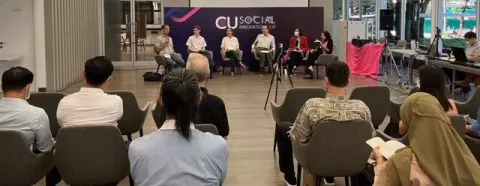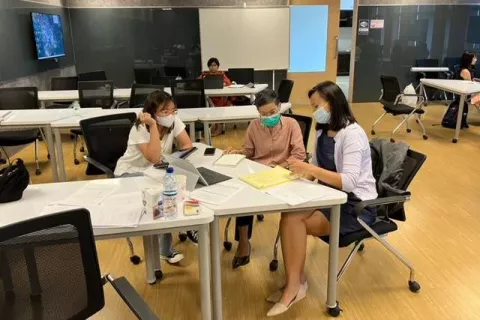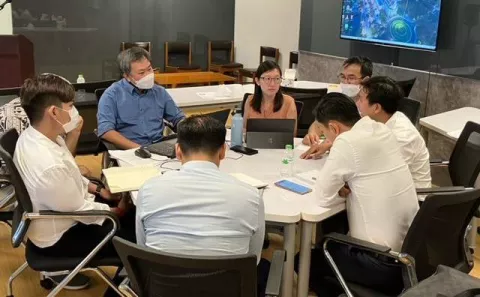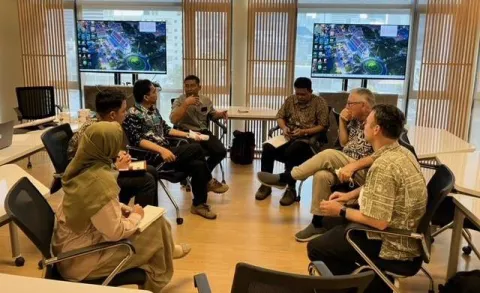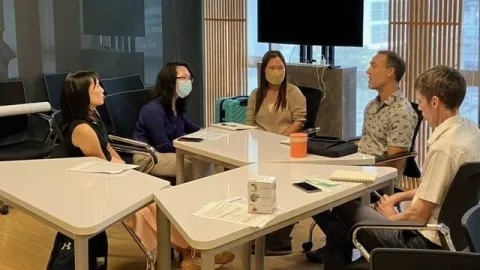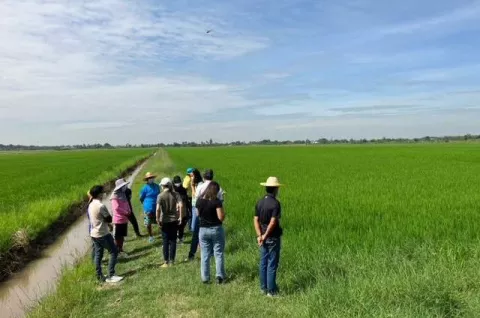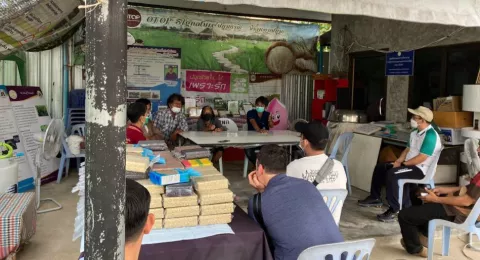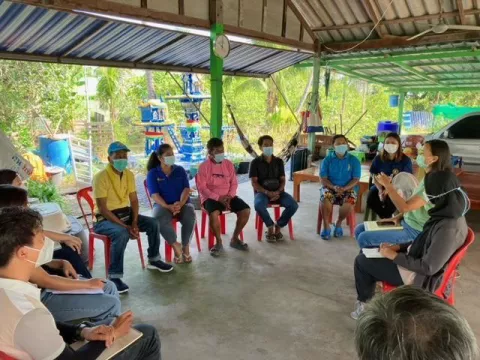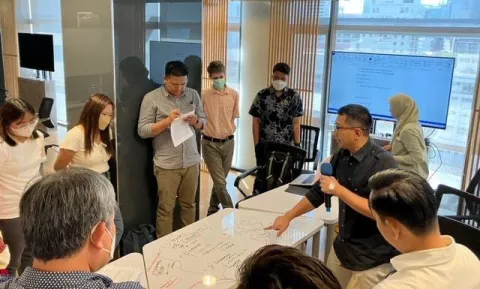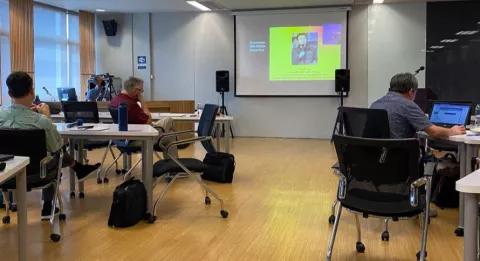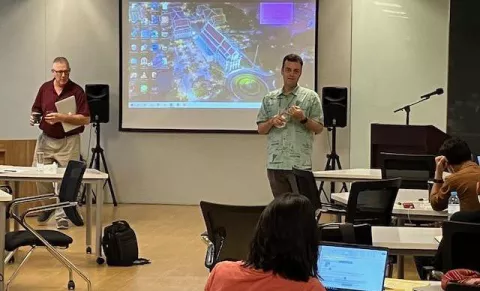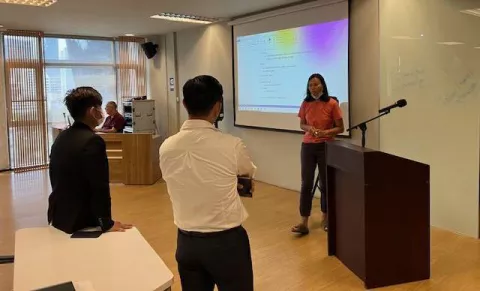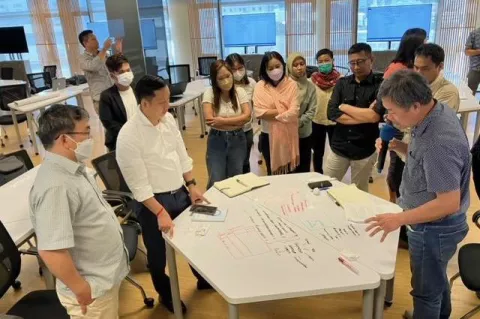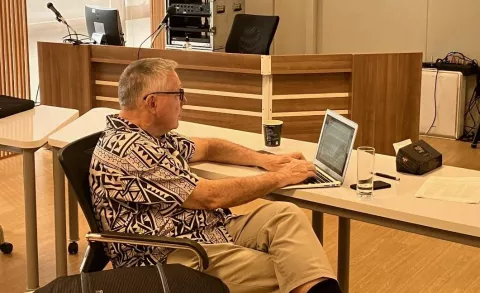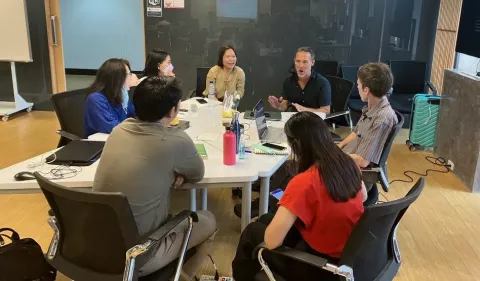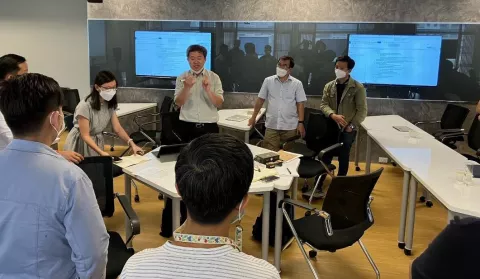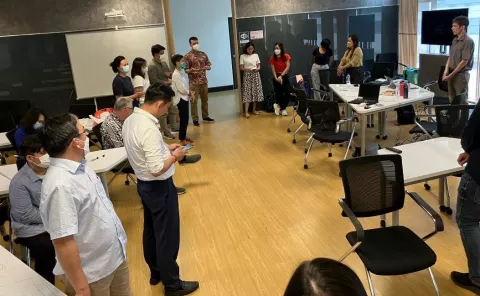Error message
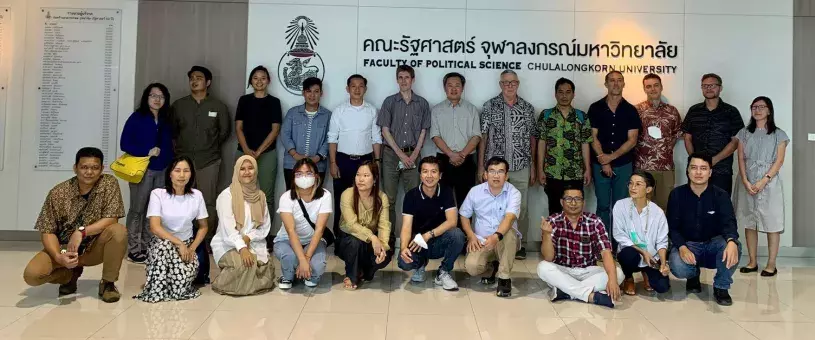
OFFICE/DEPARTMENT
Researchers from the East-West Center, in Honolulu Hawai‘i gathered from 6-9 December in Bangkok, Thailand at Chulalongkorn University’s Center for Social Development Studies (CSDS) at the Faculty of Political Science with academics, graduate students, and practitioners from several universities and institutions from five countries (Thailand, Myanmar, Cambodia, Vietnam, and Indonesia) to start a new collaborative project, titled “Vulnerable Deltas in Southeast Asia: Climate Change, Water Pollution, and Socio-Economic Transformation.” This is a 4-year project funded by the Henry Luce Foundation with the goals of deepening networks between the US and Southeast Asia and enhancing educational capacities to understand and address the vulnerabilities in river deltas.
Day One
On day one of the workshop, there were a series of short presentations followed by team breakout groups. A key objective of the project is to expand and deepen existing research networks to explore climate, environmental, social and infrastructure threats to deltas. Teams presented issues on the diverse vulnerabilities from across delta regions of Southeast Asia, identifying thematic and geographic similarities and differences between the sub-teams.
In the afternoon, participants attended a book launch panel discussion to learn about the newly published book “Turning Land into Capital: Development and Dispossession in the Mekong Region.” Dr. Kevin Woods (East-West Center), editor and author, and Dr. Carl Middleton, author, were a part of this panel and summarized their book contributions and insights.
Day Two
The second day of the workshop involved a field trip to rice growing villages located an hour’s drive outside of Bangkok in Pathum Thani Province, to meet with rice farmers to discuss how climate change and climate variability affect farm production, crop yields, and labor time.
The farmers shared with the workshop participants how the nature of rice farming has transformed over the past decades, and the challenges they faced in relation to increasingly unpredictable climate patterns, urban development encroaching onto farmlands, and the uncertain future of rice farming as younger generations transition away from rural livelihoods.
Workshop participants were also able to draw comparisons with agricultural livelihoods in their respective countries. Overall, the agricultural productivity and ecological integrity of Southeast Asia deltas are increasingly threatened by the combined effects of natural and human-induced changes, including upstream hydropower development, irrigation and urban development, resource extraction and plantation expansion, regional infrastructural linkages, waste pollution, and both rapid and slow-onset environmental change.
Day Three
On day three, the participants met to debrief on the information they gathered during the field trip and to discuss some key overarching project objectives. Research teams also met in groups to outline key project activities together and to discuss ideas with the larger group. Each team made a short presentation to the larger workshop participants. They highlighted key areas of cross-fertilization between the projects, in terms of co-learning and research between Southeast Asia regions.
A key goal of this project is to apply research findings to inform new interdisciplinary and multilingual educational materials and extensive outreach to the public through our regional networks, drawing critical attention and innovative solutions to the intensifying threats to Southeast Asia deltas and its diverse residents from increasing climate change risk.
After engaged discussions, workshop participants shared their interests in developing training and curriculum in relation to the conceptualization of vulnerability and river deltas, environmental governance, research methodology, data analysis, and experiential learning through field schools.
Another key objective of the project is to build bridges between China and Southeast Asia by focusing on China’s direct investment into the region and its social environmental impacts on delta environments.
Day Four
On the final day of the workshop groups continued working to define project activities and strategies. Project teams presented their progress to the larger group and received feedback from their peers.
Researchers from the East-West Center, in Honolulu Hawai‘i gathered from 6-9 December in Bangkok, Thailand at Chulalongkorn University’s Center for Social Development Studies (CSDS) at the Faculty of Political Science with academics, graduate students, and practitioners from several universities and institutions from five countries (Thailand, Myanmar, Cambodia, Vietnam, and Indonesia) to start a new collaborative project, titled “Vulnerable Deltas in Southeast Asia: Climate Change, Water Pollution, and Socio-Economic Transformation.” This is a 4-year project funded by the Henry Luce Foundation with the goals of deepening networks between the US and Southeast Asia and enhancing educational capacities to understand and address the vulnerabilities in river deltas.
Day One
On day one of the workshop, there were a series of short presentations followed by team breakout groups. A key objective of the project is to expand and deepen existing research networks to explore climate, environmental, social and infrastructure threats to deltas. Teams presented issues on the diverse vulnerabilities from across delta regions of Southeast Asia, identifying thematic and geographic similarities and differences between the sub-teams.
In the afternoon, participants attended a book launch panel discussion to learn about the newly published book “Turning Land into Capital: Development and Dispossession in the Mekong Region.” Dr. Kevin Woods (East-West Center), editor and author, and Dr. Carl Middleton, author, were a part of this panel and summarized their book contributions and insights.
Day Two
The second day of the workshop involved a field trip to rice growing villages located an hour’s drive outside of Bangkok in Pathum Thani Province, to meet with rice farmers to discuss how climate change and climate variability affect farm production, crop yields, and labor time.
The farmers shared with the workshop participants how the nature of rice farming has transformed over the past decades, and the challenges they faced in relation to increasingly unpredictable climate patterns, urban development encroaching onto farmlands, and the uncertain future of rice farming as younger generations transition away from rural livelihoods.
Workshop participants were also able to draw comparisons with agricultural livelihoods in their respective countries. Overall, the agricultural productivity and ecological integrity of Southeast Asia deltas are increasingly threatened by the combined effects of natural and human-induced changes, including upstream hydropower development, irrigation and urban development, resource extraction and plantation expansion, regional infrastructural linkages, waste pollution, and both rapid and slow-onset environmental change.
Day Three
On day three, the participants met to debrief on the information they gathered during the field trip and to discuss some key overarching project objectives. Research teams also met in groups to outline key project activities together and to discuss ideas with the larger group. Each team made a short presentation to the larger workshop participants. They highlighted key areas of cross-fertilization between the projects, in terms of co-learning and research between Southeast Asia regions.
A key goal of this project is to apply research findings to inform new interdisciplinary and multilingual educational materials and extensive outreach to the public through our regional networks, drawing critical attention and innovative solutions to the intensifying threats to Southeast Asia deltas and its diverse residents from increasing climate change risk.
After engaged discussions, workshop participants shared their interests in developing training and curriculum in relation to the conceptualization of vulnerability and river deltas, environmental governance, research methodology, data analysis, and experiential learning through field schools.
Another key objective of the project is to build bridges between China and Southeast Asia by focusing on China’s direct investment into the region and its social environmental impacts on delta environments.
Day Four
On the final day of the workshop groups continued working to define project activities and strategies. Project teams presented their progress to the larger group and received feedback from their peers.


